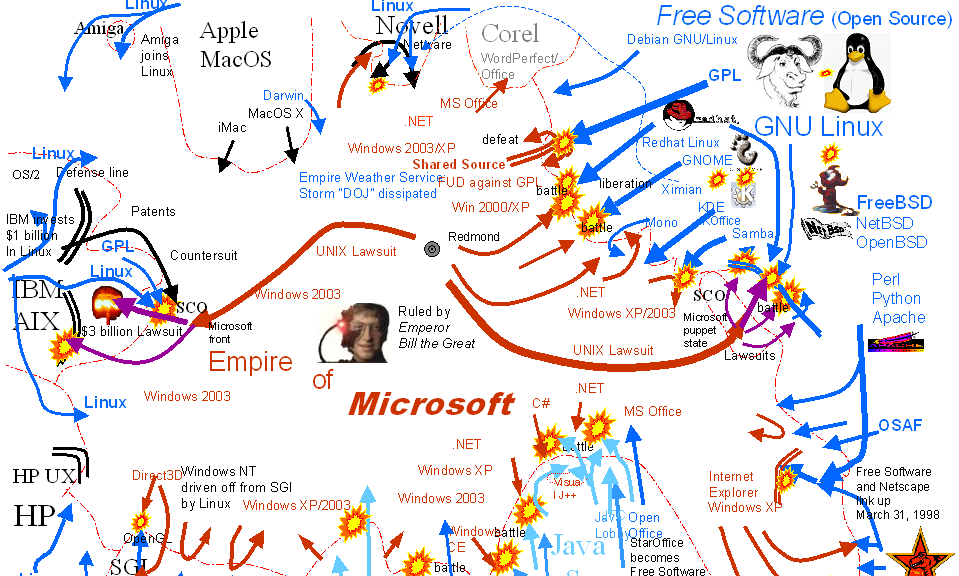
Open Source Vs Open Governance: The state and Future of Open Source Movement
Last week, DataStax announced that it was jettisoning its role in maintaining the Planet Cassandra community resource site, even as the project lead, Jonathan Ellis, made it known that DataStax would be doubling down on its commercial product, rather than Cassandra. Though the DataStax team put a brave face on the changes, the real question is why DataStax had to change at all.
Similarly, When Sun and then Oracle bought MySQL AB, the company behind the original development, MySQL open source database development governance gradually closed. Now, only Oracle writes updates, patches and features. Updates from other sources — individuals or other companies — are ignored.
These are two opposite extremes in the open-source movement. When an open source project reaches a critical threshold and following, it grows bigger than the chief contributor. A company or a group of people, it may be. But, it has taken shape in such a way that they can no longer commit resources and still the community will take care of everything, features, development, support, documentation and everything in between. This is the real essence of open source development.
However, it is absolutely necessary for an initial sponsor for the project to thrive in its infancy.
MySQL is still open source, but it has a closed governance.
In the case of MySQL, the source code was forked by the community, and the MariaDB project started from there. Nowadays, when somebody says s/he is “using MySQL”, he is in fact probably using MariaDB, which has evolved from where MySQL stopped in time.
Take a look at the Github page of MySQL for reference.


All Core committers are from Oracle !
Cassandra is still open source, but now it has open governance.
The Cassandra question is ultimately about control. As the ASF board noted in the minutes from its meeting with DataStax representatives, “The Board expressed continuing concern that the PMC was not acting independently and that one company had undue influence over the project.” Given that DataStax has been Cassandra’s primary development engine since the day it spun out of Facebook, this “undue influence” is hardly new.
And, according to some closest to Cassandra, like former Cassandra MVP Kelly Sommers, that “undue influence” has borne exceptional fruits. Sommers clearly feels this way, insisting that the ASF “is really out of line in their actions with Cassandra,” ultimately concluding that the ASF might be hostile to the very people most responsible for a project’s success.
In her view, the ASF’s search for diversity in the Cassandra project should have started with expanding its existing leadership, rather than cutting it out: “The ASF forced DataStax to reduce their role in Cassandra rather than forming a long-term strategy to grow diversity around theirs,” Sommers said.
Though Sommers doesn’t directly comment on the trademark issues, she didn’t pull any punches in her disdain for project process over code results: “Politics is off the rails when focus is lost on success of the thing it runs and all that matters is process. This is how I feel ASF operates,”
So, for companies hoping to monetise open source, the Cassandra blow-up is a not-so-subtle reminder that community can be inimical to commercial interests, however much it can fuel adoption. It may also be a signal to the ASF that less corporate influence on projects could yield less code.
Now, Back to our agenda.
Open source vs. open governance
Open source software’s momentum serves as a powerful insurance policy for the investment of time and resources an individual or enterprise user will put into it. This is the true benefit behind Linux as an operating system, Samba as a file server, Apache HTTPD as a web server, Hadoop, Docker, MongoDB, PHP, Python, JQuery, Bootstrap and other hyper-essential open source projects, each on its own level of the stack. Open source momentum is the safe antidote to technology lock-in. Having learned that lesson over the last decade, enterprises are now looking for the new functionalities that are gaining momentum: cloud management software, big data, analytics, integration middleware and application frameworks.
On the open domain, the only two non-functional things that matter in the long term are whether it is open source and if it has attained momentum in the community and industry. None of this is related to how the software is being written, but this is exactly what open governance is concerned with: the how.
The value of momentum
Open governance alone does not guarantee that the software will be good, popular or useful (though formal open governance only happens on projects that have already captured some attention of IT industry leaders). A few examples of open source projects that have formal open governance are CloudFoundry, OpenStack, JQuery and all the projects under the Apache Software Foundation umbrella.
For users, the indirect benefit of open governance is only related to the speed the open source project reaches momentum and high popularity.
In conclusion it is a very delicate act of balancing Open-Source development and Open-Governance on Development. Oracle failed in getting the diversity thereby creating MariaDB while ASF ejected Datastax to avoid a repeat of the former!!!

